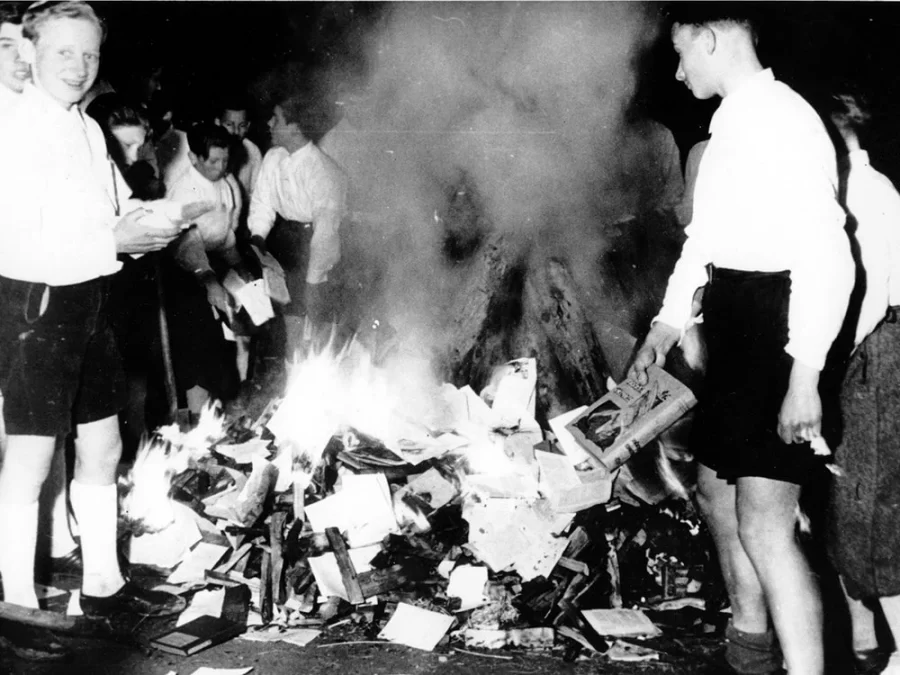Texas Launches a War on Books
Hitler Youth Burn Books, 1938
Everything’s bigger in Texas, particularly the list of books that State Representative Matt Krause is pulling from public school libraries. In a letter to education officials, Krause demanded that the Texas Education Agency investigate “any criminal activity in our public schools involving the availability of pornography.” He used House Bill 3979, Texas’ punishing censure of “critical race theory,” to condemn material discussing LGBTQ+ issues, racism, birth control, and sexuality.
The law states that curriculums may not “make students feel discomfort, guilt, anguish, or any other form of psychological distress because of their race or sex.” Krause’s definition of psychological distressing content includes informational material (The Gale Encyclopedia of Medicine), uplifting rom-coms (Simon vs. The Homo Sapiens Agenda), groundbreaking classics (The Handmaid’s Tale), and examinations of racism (All American Boys). Almost two-thirds of banned books feature queer characters, proof that Krause’s idea of “pornography” incriminates all LGBTQ+ stories, regardless of sexual content.
Aside from the issues with House Bill 3979 itself (any empathetic teaching of history will necessarily provoke discomfort), it’s difficult to see how literature about queer people actually conflicts with the mandate’s purpose. How could being in the same school as a book featuring gay characters “make” students feel race- or sex-based distress? Along the same lines, books discussing racism were accused of promoting “anti-police” attitudes. Notably, the violence perpetrated by fictional police (which is often based on real encounters) escaped indictment.

As unjustifiable as Krause’s letter is, it’s only a drop in the bucket of Texas’ scholastic scandals. House Bill 3979 only elevates a pre-existing legacy of banning books. This October, a top administrator in one school district instructed teachers to offer “opposing perspectives” on slavery and the Holocaust. In the same month, the Carroll school board formally reprimanded a fourth-grade teacher for keeping a book on anti-racism in her classroom.
Authors have responded with a vengeance. A laundry list of famous Texan writers condemned the attack in an open letter. School librarians took to Twitter in a storm of protest and launched a website called #FReadom “to highlight the positive work of librarians, to speak up, and to provide resources for librarians, teachers, or authors facing book challenges.”
Baseless accusations of “obscene content” veil prejudice and distract from the nationwide reality of historical sugarcoating since the Civil War. After centuries of social movements and cultural change, authors finally have the freedom to correct the narrative. The truth is finally here. Now, we have to tell it.








ovitt • Dec 16, 2021 at 3:29 pm
Nearly as dangerous as banning books is not reading books when they are available. Many persons defend the right to read and publish but demur from reading: we defend books by making them a part of our lives.
No moral prig would dream of going to a school and axing the gym floor or digging up the football field, but books are fair game: mostly no one knows what’s in them, and their defenders are basically decent people who don’t want to fight the Greg Abbott’s of the world. We fight hardest for what we love most.
Thanks for this Kira. Rake that muck!